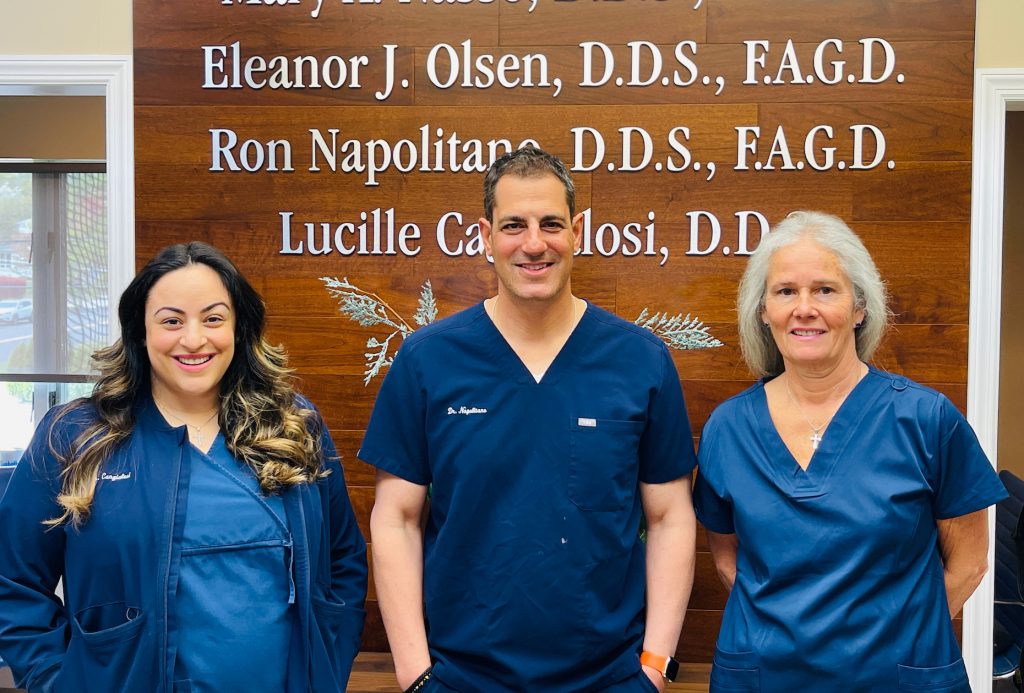

What Does a General Dentist Do?
When it comes to safeguarding your oral health, a general dentist is undoubtedly your first line of defense. But do you know all of the tasks they perform and how critical their role is in preserving that precious smile of yours? Our Staten Island general dentists dive into the world of general dentistry, unraveling its broad scope and highlighting why they’re instrumental in ensuring your teeth and gums remain in stellar condition.
Don’t ignore your health! The journey towards that perfect smile begins here. Join us as we unmask the vital role of general dentists.
The Role of a General Dentist in Oral Health
General dentists play a critical role in maintaining and promoting oral health. They’re the primary providers of dental care, responsible for a comprehensive range of dental services, including diagnosis, treatment, and prevention of various dental conditions. These professionals undergo additional education beyond dental school through workshops, lectures, and courses to enhance their skills and stay up-to-date with the latest advancements in dentistry.
When you visit a general dentist, they’ll begin by conducting a visual inspection of your teeth and gums. This assessment helps identify any visible dental issues or abnormalities that require attention. Additionally, X-rays may be taken to detect potential problems hidden beneath the surface, such as decay or impacted teeth.
A general dentist will evaluate the health of your teeth and gums and recommend appropriate treatments or preventive measures based on their findings. For instance, if they identify signs of gum disease during the evaluation, they can provide periodontal treatments to address the condition. These treatments may involve deep cleaning, also known as tooth scaling or root planing, to remove plaque and tartar buildup below the gumline.
Preventive Care and Periodontal Interventions
Preventive care is at the forefront of a general dentist’s role in ensuring good oral health. They emphasize the importance of regular check-ups and cleanings to maintain optimal dental hygiene. During these appointments, the dentist will thoroughly clean your teeth by removing plaque and tartar buildup that can contribute to tooth decay and gum disease.
Another crucial aspect of preventive care is educating patients about proper oral hygiene practices. The general dentist will guide you on brushing techniques, flossing, and overall dental care routines tailored to individual needs. By arming patients with knowledge and practical tips, they empower them to take charge of their oral health and prevent future dental issues.
A general dentist may educate a patient on the importance of brushing twice a day using fluoride toothpaste, as well as incorporating daily flossing into their routine. They may also discuss the significance of a balanced diet that’s low in sugar and high in essential nutrients for maintaining strong and healthy teeth.
Beyond preventive care, general dentists are skilled in handling periodontal interventions. Gum disease is a common dental condition that affects the gums and supporting structures of the teeth. It can range from mild gingivitis to severe periodontitis, requiring various treatments to manage and resolve the issue.
 Diagnosis and Treatment of Dental Conditions
Diagnosis and Treatment of Dental Conditions
As primary oral healthcare providers, general dentists play a crucial role in the diagnosis and treatment of dental conditions.
Imagine going to your dentist for a regular check-up, and during the examination, your dentist detects a small cavity that went unnoticed. By catching it early on, your dentist can treat it before it worsens and potentially save you from experiencing pain or having to undergo extensive dental procedures.
After diagnosing dental issues, general dentists create treatment plans tailored to each patient’s needs.
Procedures Performed by General Dentists
General dentists are skilled professionals who offer a comprehensive range of dental care procedures beyond diagnosis and treatment. General dentists incorporate the use of various materials in their procedures. These can include glass ionomers, composites, metals (such as gold and silver), polymers, and ceramics. The choice of material depends on factors such as durability requirements, cost considerations, location within the mouth, and aesthetic goals.
Preventive
Preventive dental services are procedures and treatments designed to prevent the onset of dental diseases or halt their progression.
- Teeth cleanings (prophylaxis): Professional cleaning helps remove plaque and tartar build-up that regular brushing and flossing might miss.
- Fluoride treatments: Topical fluoride strengthens enamel and can help reverse the early stages of tooth decay.
- Dental sealants: These are thin protective coatings applied to the chewing surfaces of molars to prevent cavities, especially in children.
- Oral hygiene instructions and education: Dentists and dental hygienists often instruct patients on proper brushing, flossing, and rinsing techniques to ensure effective daily oral care.
Restorative
Restorative procedures involve repairing or replacing damaged teeth to restore function and improve appearance.
- Dental fillings are used to treat cavities caused by tooth decay. During this procedure, the dentist removes the decayed portion of the tooth and fills it with materials like composite resin or amalgam.
- Dental bridges serve as a solution for filling gaps created by missing teeth. They consist of artificial teeth anchored between two dental crowns attached to adjacent natural teeth. Bridges effectively restore a patient’s ability to bite and chew properly while maintaining a pleasing smile.
- Dentures are another popular restorative option for individuals missing some or all of their teeth. These removable appliances provide functional replacement teeth that can be taken out for cleaning or sleeping.
Cosmetic
In addition to restorations, general dentists perform cosmetic procedures to improve the appearance of patients’ teeth and smiles.
- Teeth whitening treatments remove stains and discoloration.
- Dental bonding repairs chips or cracks.
- Veneers to enhance the shape, size, or color of teeth.
- Orthodontic treatment, such as braces or aligners, is also within the realm of general dentistry. These procedures correct misaligned teeth, improper bites, and jaw problems, improving overall oral health and enhancing aesthetics.
Continuous Education of General Dentists
The field of dentistry is ever-evolving, with advancements in techniques, technology, and research. To provide the best possible care to their patients, general dentists must engage in continuous education throughout their careers. This ensures they stay abreast of the latest developments in oral health and maintain a high standard of care.
Continuing education allows general dentists to expand their knowledge and expertise in specialized areas such as:
- Implantology
- Endodontics (root canals)
- Periodontics (gum disease treatment)
- Orthodontics
By attending workshops, seminars, conferences, and online courses, dentists can learn new techniques, stay updated on emerging technologies, and enhance diagnostic skills.
Continuous education enables general dentists to keep pace with changes in dental materials and products. They learn about new restorative materials or cosmetic options that may provide better outcomes for their patients. This knowledge empowers them to make informed decisions when recommending treatment plans.
Apart from technical skills, continuous education also encompasses developing effective communication and management skills. Dentists who invest in improving their patient communication abilities can foster stronger dentist-patient relationships and ensure optimal treatment outcomes. Additionally, staying updated on practice management strategies helps dentists streamline administrative tasks and deliver efficient dental services.
By committing to lifelong learning, general dentists demonstrate their dedication to providing quality care. Patients can have confidence knowing that their dentist is continually expanding their knowledge base, staying current with industry advancements, and delivering the best possible treatment options.
Communicating With Your General Dentist for Optimal Dental Health
Effective communication between you and your general dentist is crucial for maintaining optimal dental health. By sharing important information and discussing any concerns or questions you have, you can ensure that your dental care aligns with your specific needs.
Here are some key aspects to consider when communicating with your general dentist:
- Be Open and Honest: Your general dentist relies on accurate information to provide the best care possible. Be open about your oral health history, previous dental procedures, and any underlying health conditions that might impact your dental health. Inform your dentist about any medications you’re taking, as certain medications can affect your oral health.
- Discuss Daily Routines: Your daily dental routine plays a significant role in maintaining good oral health. Make sure to discuss your brushing and flossing habits with your general dentist. They can guide proper techniques and recommend any additional products or practices that might benefit you.
- Inquire About Dental Products: There’s a plethora of dental products available in the market, from toothpaste to mouthwash, and each claims different benefits. It’s natural to feel overwhelmed by the choices. Engage in a conversation with your general dentist about which dental products they recommend based on your specific needs.
- Address Treatment Sensitivity or Discomfort: Some dental procedures can cause temporary sensitivity or discomfort. If you experience any discomfort during a procedure, don’t hesitate to communicate with your general dentist. They can adjust their approach and utilize techniques to minimize discomfort. Regularly providing feedback to your dentist helps them understand your comfort levels and adapt accordingly.
- Share Current Health Conditions: Certain health conditions or medications can have implications for dental health and treatment options. Keep your general dentist informed about any changes in your overall health or medications you’re taking, as this information can influence the course of your dental care.
Effective communication with your general dentist fosters a trusting relationship and ensures that your specific needs are met throughout your dental care journey. Don’t hesitate to express any doubts or concerns during appointments, as open dialogue helps both you and your dentist work towards achieving optimal oral health.
Schedule an Appointment With Our General Dentists
Are you looking for a new general dentist in the Staten Island area? Contact our dentists today to set up your first appointment! Call us today at (718) 948 5111. We can’t wait to meet you and get you started on meeting your oral health goals.


 Diagnosis and Treatment of Dental Conditions
Diagnosis and Treatment of Dental Conditions